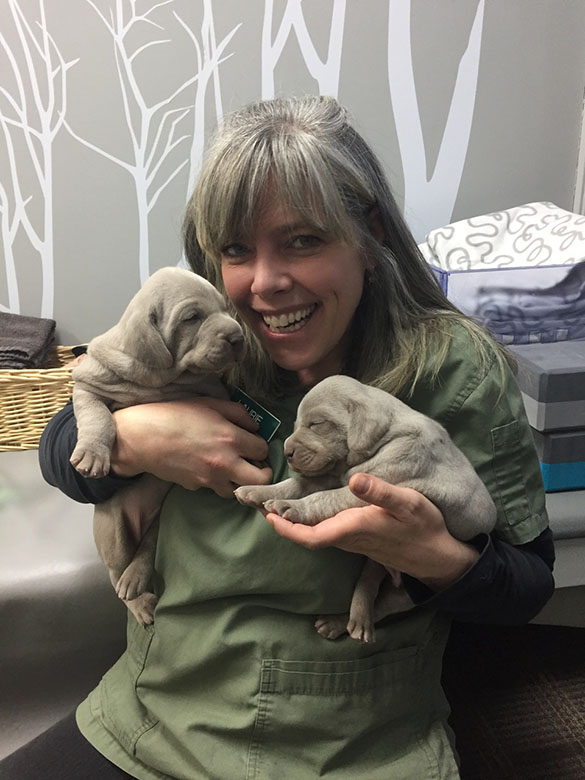Laurie's Blogs.
Jun 2019
Are you getting burnt out in your canine rehab / physio career?

What Is Burnout?
Wikipedia defines occupational burnout as the result of long-term, unresolvable, job stress.
It can also occur when you have worked in a physically or emotionally draining role for a long time. Additionally, you can also experience burnout when your efforts at work have failed to produce the results that you expected, and you feel deeply disillusioned as a result. It is a state of physical and emotional exhaustion.
We all likely go through this because of the care-giver role we play (no matter the patient species!!). So, let’s look at what you can do to prevent, reduce, or recover from burnout!
An interesting podcast featuring physical therapists and athletic trainers was the inspiration for this blog. I was actually really impressed with the answers that this group came up with!
•Mix things up (how you treat, when you treat, who you treat…)
•Reinvent yourself. Do you want to change the population you see? Niche a bit more? (i.e. Sporting dogs, geriatrics dogs, neuro dogs, etc.) Market to these populations!
• What are you passionate about? Can you do more of that? Treat more of those?
•Reinvent your day. Start later or earlier… end later or earlier. Give yourself admin time, or a break to catch up on charts.
•Create systems (i.e. for your notes/ charts, things you do at certain hours, or are done by a certain time, or ways to streamline your ancillary care – paperwork & phone calls)
•Are you seeing too many patients? (Hire someone or raise your prices and lose some patients).
•Are you sacrificing quality of patient care because of your workload? (Then change your workload!)
•Are you frustrated with cases that aren’t doing well? (Maybe you need to learn more, & gain more skills.)
•Early in your career, you can get energized by upgrading your skills and learning new techniques and theories.
•Later in your career, you can get energized by staying current with new research and ways to ‘tweak’ your treatments.
Then of course, there is the very real cases of ‘hit burnout’ and you’d better make changes in your life NOW! I sort of felt this way when I had appendicitis a couple of years ago, resulting in an emergency appendectomy. From there, I reduced my 10-hour work days, and began taking a couple of days off every month.
Another article cited in the resources for this blog post says, “Burnout doesn't go away on its own; rather, it will get worse unless you address the underlying issues causing it. If you ignore burnout, it will only cause you further harm down the line, so it's important that you begin recovery as soon as possible. Recovery from burnout is a slow journey; not a quick dash to some imaginary finish line. You need time and space to recuperate, so don't rush through this process.”
•Think about why you burnt out. Maybe keep a stress diary.
•Focus on the basics: Get good quality sleep & exercise. I’ll add “get fresh air and sunshine” to this list as well.
•Get away. Go on a vacation, even if just a short de-stressing weekend.
•Reassess your goals and what you want. I think this fits in nicely with the advice above in regards to finding your passion and niche. Otherwise it could mean, open one of those cafes with cats for adoption and scrap the profession altogether!
•Say ‘No’ to added tasks and responsibilities
•Practice positive affirmations. It might sound geeky, but just try it!
•I’m now becoming more and more of a believer in meditation as well! (Get the ‘headspace’ app!)
We do amazing things in this animal rehab field. So be sure to take care of yourself so that you can continue to take care of the critters!
Resources
https://mikereinold.com/how-to-avoid-burnout-as-a-physical-therapist/
https://www.mindtools.com/pages/article/recovering-from-burnout.htm
https://en.wikipedia.org/wiki/Occupational_burnout


